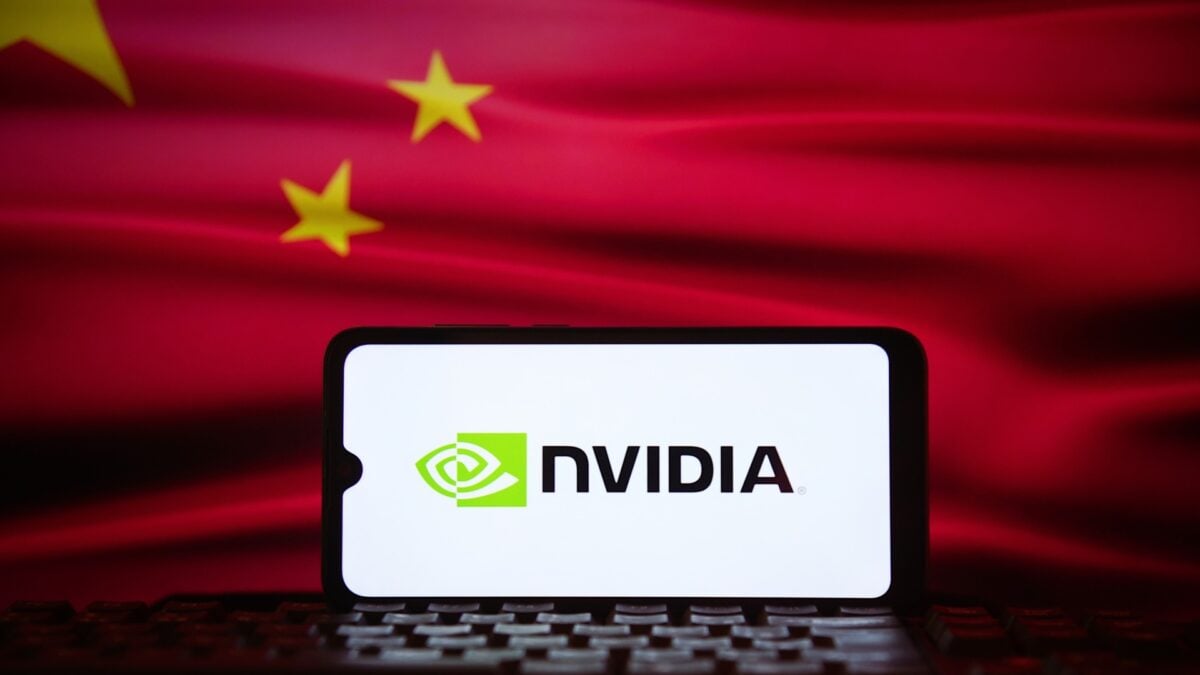Beijing is souring on Nvidia.
China, which used to be one of Nvidia’s largest markets, seems largely conflicted about reaccepting Nvidia’s lower-tech H20 chips that Trump administration finally allowed to resume sales of in July. The Chinese tech industry might be excited about the Nvidia chip flow resuming, but the government is allegedly not.
Chinese authorities have discouraged local tech companies from purchasing Nvidia chips citing national security concerns, and even questioned industry titans like Tencent over their purchases of Nvidia chips, according to Reuters.
In response, tech giants like Alibaba and Baidu have begun using their own chips to train smaller AI models, the Information reported on Thursday, but they will reportedly continue to use some Nvidia chips.
“The competition has undeniably arrived,” an Nvidia spokesperson told Gizmodo. “Customers will choose the best technology stack for running the world’s most popular commercial applications and open-source models. We’ll continue to work to earn the trust and support of mainstream developers everywhere.”
Chinese development is ramping up. China chip stocks have experienced a major boom so big that the Beijing-based company Cambricon had to warn investors recently. Tech giants like Huawei and Alibaba are leading the push, but smaller companies are also making strides.
Shanghai-based tech company MetaX told the Wall Street Journal last month that it’s preparing to start mass production of a new chip that has bigger memory than Nvidia’s H20.
Still, largely no chip offering so far has been considered completely up to par with Nvidia’s best offerings. Reuters reported last week that top Chinese tech firms like Alibaba and ByteDance are still very keen to get their hands on Nvidia chips. That’s despite the fact that the Nvidia chips that are being sold to China are downgraded versions of existing models, developed to abide by U.S. exports restrictions.
The chips saga
Some experts in Washington think any supply of American tech to China has sizable national security risks attached to it. They also claim the chips can assist China in outpacing American AI innovation.
The Biden administration was first to enforce export restrictions on Nvidia chips sold to China, in an effort to curb the entry of high-tech chips into China off of those fears.
Beijing landed a particularly big blow to domestic AI confidence earlier this year with Deepseek’s R1, an AI model that rivaled the best of American companies offerings using lower cost chips, inadvertently showing Americans that Chinese innovation did not require the top Nvidia chips.
That fueled the blanket ban decision which turned out to be less effective than expected when a Financial Times report found that Nvidia’s highest tech chips were being smuggled into China in the absence of the lower tech H20s.
The decision was also a big hit to Nvidia: executives shared in a May earnings call that they had to revise revenue expectations down for the quarter by about $8 billion due to the restrictions.
After an intense lobbying effort by Nvidia CEO Jensen Huang, Trump reversed his decision in July, allowing H20 chips sales to China. In exchange, Trump demanded that Nvidia, and fellow American chipmaker AMD, both give the U.S. government a 15% cut of all of their chips revenue in China.
Just when Nvidia thought all was finally well, Beijing started raising concerns about the new Nvidia chips coming into China having kill switches and backdoors, urging Chinese companies to not use them. Nvidia has denied the claim.
The remaining political uncertainty has continued to cast a shadow on Nvidia’s performance in China. The company conceded in its latest earnings call that they were facing disappointing numbers from the region still and were yet to begin H20 shipments.
Why did Beijing change its mind?
China has a long relationship with Nvidia. The downturn in that relationship began after the first export restrictions went into effect, ramped up after an antitrust probe in December and has developed a life of its own under Trump’s trade war.
Chinese officials have voiced security concerns related to the latest round of chips set to enter the country, but this attitude change has less to do with Nvidia itself and more about China’s own chip industry.
Chinese AI industry is currently dependent on American chipmakers like Nvidia, and that gives Americans an edge. In the absence of Nvidia chips, China will have to develop their own high-tech chips that can rival and even surpass the quality of Nvidia chips. If that happens, the United States can be at jeopardy to lose its hold on the global chips demand, and China is the runner-up.
The country is making a big bet on AI, announcing an $8.2 billion AI-investment fund earlier this year, in an effort to spur innovation and reach independence.
“It’s unfortunate to see that we in Asia, including China, are emulating the U.S. when it comes to developing algorithms and large models,” Wei Shaojun, an adviser to senior Chinese government officials and a professor at top Beijing university Tsinghua University told a forum in Singapore on Thursday. He warned that staying on this path of dependence could be “lethal” for the region, according to Bloomberg.
Along with the chips push, the country has increasingly emphasized global cooperation in AI, and center to that initiative is Beijing’s desire to cement itself at the center of the global AI trade.
It seems China is coming to terms with the fact that aspiration won’t be achievable as long as the industry is dependent on the U.S. for chips, especially when Washington has demonstrated that its trade policy decisions are volatile.
